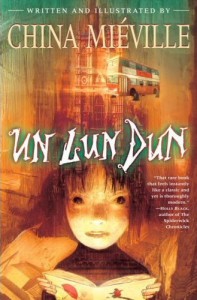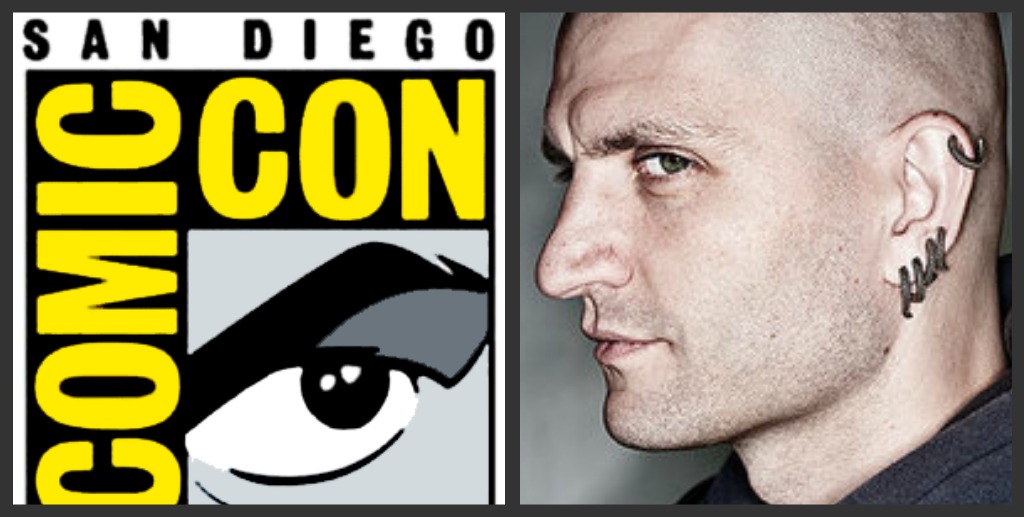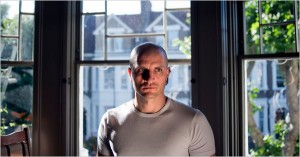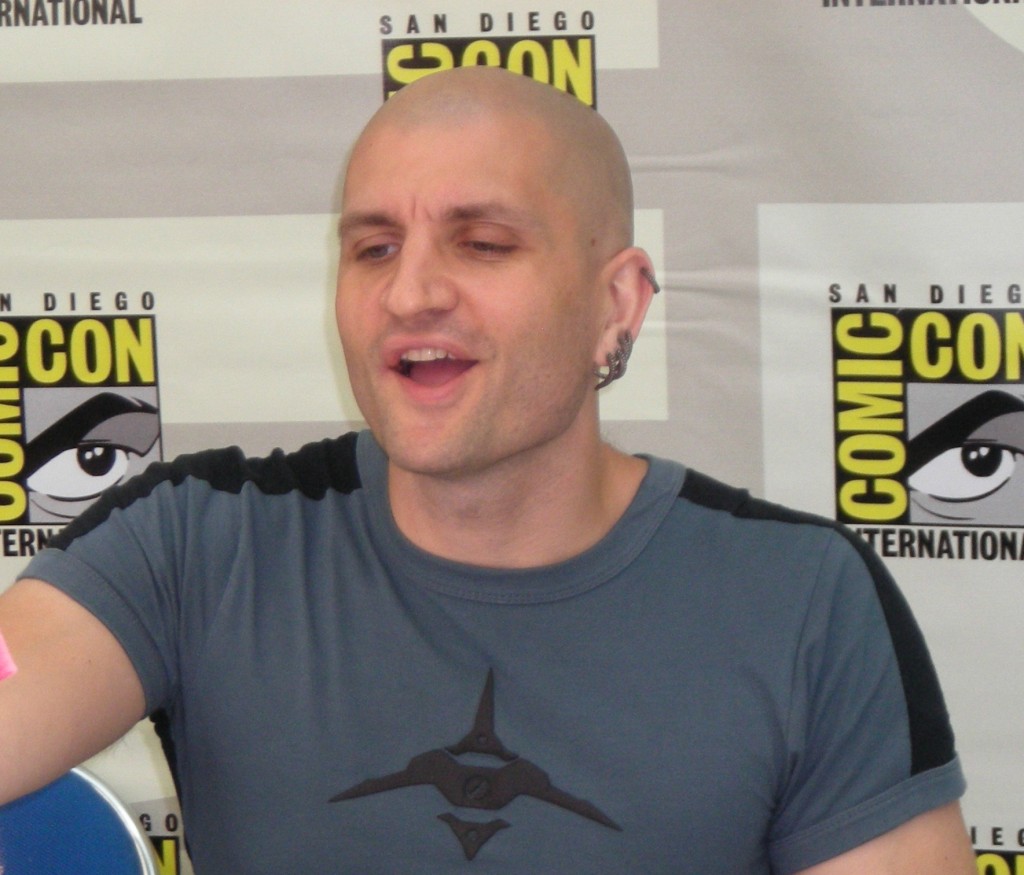I’ve learned that how much I like an author in person is very indicative of how much I’ll like the author’s books – you can get a very good sense of the voice, the personality, that you will find on the page. I had yet to read China Mieville, but on hearing he was one of the featured authors at Comic-con this year, I made a point of getting to the panels he was on. I wanted to get a feel for this author that everyone seems to be talking about.
 My first encounter with China was at the Twisting Genres panel, where I was startled to discover China was, in fact, a “he.” I couldn’t help but wonder at the name – was he named for the country or the dishware? Was he bullied mercilessly as a child?
My first encounter with China was at the Twisting Genres panel, where I was startled to discover China was, in fact, a “he.” I couldn’t help but wonder at the name – was he named for the country or the dishware? Was he bullied mercilessly as a child?
China jumped into the fray after Naomi Novik talked about choosing to mash two genres – dragons and the Napoleonic wars, in her case – because it was the Reece’s peanut butter cup magic (i.e. chocolate AND peanut butter is just better), a way to make something new out of the familiar.
China’s response: “Bad aesthetic arithmetic. Awesome plus awesome does not lead to two awesome. It can occasionally lead to abomination – like the Reece’s peanut butter cup.”
He went on to talk about how genres are marketing categories at heart, but I was still left wondering, what kind of person doesn’t like a Reeces peanut butter cup?
 I next saw China at the British Invasion panel, where he was one of an interesting row of British writers whose work spanned novels, comics, and TV. Seeing as this was Comic-con, the panel was naturally dominated by Doctor Who fans peppering Paul Cornell with questions, so China didn’t have the chance to say a lot this round, but it’s obvious to anyone sitting in the same room with him that he’s an intelligent guy with an interesting mind. But as the second panel was winding down, I found myself, frankly, a tad put off by China’s manner. American stereotypes of the British aside, China just oozes academia in such a ferocious manner that it teeters on the edge of alienating. He unleashes a debate-like manner and high end vocabulary at every possible opportunity (who uses perspicacity in an everyday sentence, I ask you?), such that I couldn’t make up my mind if he was doing it to prove how much smarter he was than everyone else in the room, or if he was doing it simply from a geeky love of multi-syllabic alliteration. Misunderstood brainiac or condescending intellectual? The jury was still out…
I next saw China at the British Invasion panel, where he was one of an interesting row of British writers whose work spanned novels, comics, and TV. Seeing as this was Comic-con, the panel was naturally dominated by Doctor Who fans peppering Paul Cornell with questions, so China didn’t have the chance to say a lot this round, but it’s obvious to anyone sitting in the same room with him that he’s an intelligent guy with an interesting mind. But as the second panel was winding down, I found myself, frankly, a tad put off by China’s manner. American stereotypes of the British aside, China just oozes academia in such a ferocious manner that it teeters on the edge of alienating. He unleashes a debate-like manner and high end vocabulary at every possible opportunity (who uses perspicacity in an everyday sentence, I ask you?), such that I couldn’t make up my mind if he was doing it to prove how much smarter he was than everyone else in the room, or if he was doing it simply from a geeky love of multi-syllabic alliteration. Misunderstood brainiac or condescending intellectual? The jury was still out…
Determined to make up my mind once and for all, I made sure to get to China’s last panel, which was a featured spotlight – just him for an hour. By way of introducing China, China’s publicist took to the stage and gleefully pointed out that China had a featured interview in The New York Times printed that very day (you can read it here) and he went on to read some of the warm accolades out loud. After which China took the mic and immediately made fun of the picture they used, and how scary it made him seem.
The picture:
And that was it, the moment I knew I was going to read China’s books. I’ve always liked smart, but I have a very low tolerance for people who use their smarts as an excuse for arrogance. Smart willing to make fun of itself is, well, smart. Smarter, even.
China went on to answer questions from the audience: no, he’s not planning on sequels – he’s trying to avoid the geek culture fallacy of “ruining the things we love by never leaving them alone.” Yes, he does have more YA books planned. When asked whether a book is science fiction or fantasy, his answer is: “Yes.” He admitted he had worked for D.C. on Swamp Thing and had completed 5 issues out of 15 before the whole thing got scrapped by a management change (the audience booed). His short story, “Looking for Jake“, is verbatim the writing down of a dream. When asked about the care and feeding of his imagination, China replied: “It’s not that people don’t have ideas – society trains us to not take them seriously. The trick is to not stop hearing your own stupid ideas.”
So at the end of the day, despite China’s patina of elitist vocabulary (he is a Professor at the University of Warwick, after all), it’s impossible not to like a writer who gleefully describes his latest book, Kraken, as an eschatological comedy romp.
After the panel, I followed Mr. Mieville over to the signing area to solve the mystery of the name – and it turns out China is actually old Cockney rhyming slang for mate, or friend.
And then I couldn’t resist snapping a candid to show China in a less imposing attitude – because while intelligentsia he may be, self-deprecating humor he most certainly has:
Needless to say, I plan on picking up Kraken at the first opportunity…









Leave a Reply